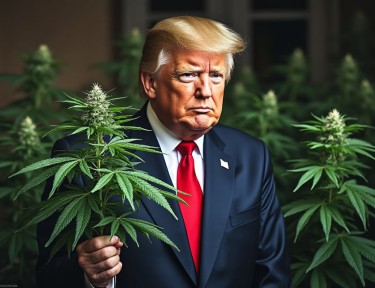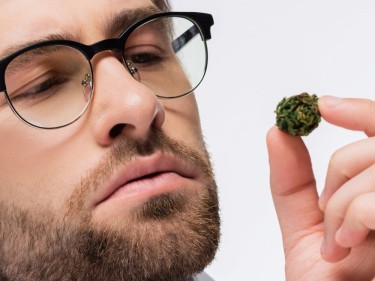Exploring Cannabis as a Treatment for Anorexia Nervosa
Published
12 months agoon
By
admin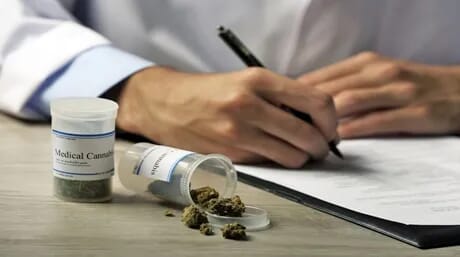
Anorexia nervosa is an eating disorder attributed to sociocultural issues such as society’s attitudes towards weight and beauty and is defined by the National Eating Disorder Association as ‘a serious, potentially life-threatening eating disorder characterized by self-starvation and excessive weight loss.’ Symptoms and behaviors associated with the disease can include extremely low body weight, body dysmorphia, obsession with the self, and calorie counting.
The concept that marijuana could benefit anorexia sufferers actually makes a lot of sense, being that cannabis is infamous for inducing the ‘munchies’, causing users to get incredibly hungry for all things edible and in their vicinity. Cannabis then is an appetite stimulant and it seems that anorexia sufferers could indeed make good use of the plant during recovery. But is there any scientific evidence to support this? Actually, yes.
A number of studies have taken place to try and find out why and how cannabis usage increases appetite
A number of studies have taken place to try and find out why and how cannabis usage increases appetite. A study took place (Gomez at al., 2014) on animals in Europe which offered an explanation for why marijuana may be useful for helping treat eating disorders. People who suffer from Anorexia commonly stop finding eating pleasurable, meaning that they cease to enjoy food in most capacities. The researchers of this study actually found that the way THC activates the endocannabinoid system’s CB1 receptor elevates pleasure in eating because it increases the bodies sensitivity to taste and scent.
There is still an awful lot of research to be done on using cannabis to treat anorexia, and the mainstream medical community is still to be convinced
There is still an awful lot of research to be done on using cannabis to treat anorexia, and the mainstream medical community is still to be convinced. Tamara Pryor, a director of clinical research at the Eating Disorder Center of Denver, says that ‘marijuana may be a helpful tool for some people – in conjunction with therapy.’ She also states that anorexia patients are empowered by not giving in to the temptation of eating, and so appetite stimulation won’t necessarily help at all. Also, it is true to say that anorexia is usually one of multiple mental disorders affecting an individual, in that anorexia sufferers usually have other disorders which accompany their eating disorder such as depression or anxiety related conditions. In turn, cannabis use may hinder a person getting better and may actually contribute to more problems and dependency. On the other hand, strains high in CBD have no habit-forming properties, so perhaps these are the strains scientists should be looking at to provide relief.
Cannabis use for the treatment of eating disorders could very well be the way forward, but with the disease being so serious and having such a high mortality rate, it is clear that plenty more research should be done in the area. It’s important to remember that there are lots of different strains and intake methods, as well as many other factors that can all influence outcomes and so it will definitely take lots of trial and error to find out what works best for those with anorexia, as well as other health conditions.
You may like
-


The Cannabis Rescheduling Ruse – White House Says No Action Planned on Cannabis Reform, Hate to Say I Told You So!
-
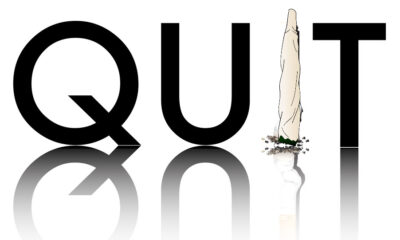

Why Quitting Alcohol or Weed Won’t Heal the Pain That Caused You to Start Using Them in the First Place
-


Karma Koala Podcast 247: Speaking with Dr. Natalie Corthésy senior lecturer university of West Indies & Enrico Bonadio professor of law City St George’s University of London about their forthcoming Edward Elgar title, “Intellectual Property and Cannabis”
-


MJBizCon offers speakers chance to share cannabis insights, shape industry
-


The Best Tariff Friendly Cocktails
-


Cannabis Consumers Are Being Hit By The Tariffs
Cannabis News
The Cannabis Rescheduling Ruse – White House Says No Action Planned on Cannabis Reform, Hate to Say I Told You So!
Published
16 hours agoon
April 5, 2025By
admin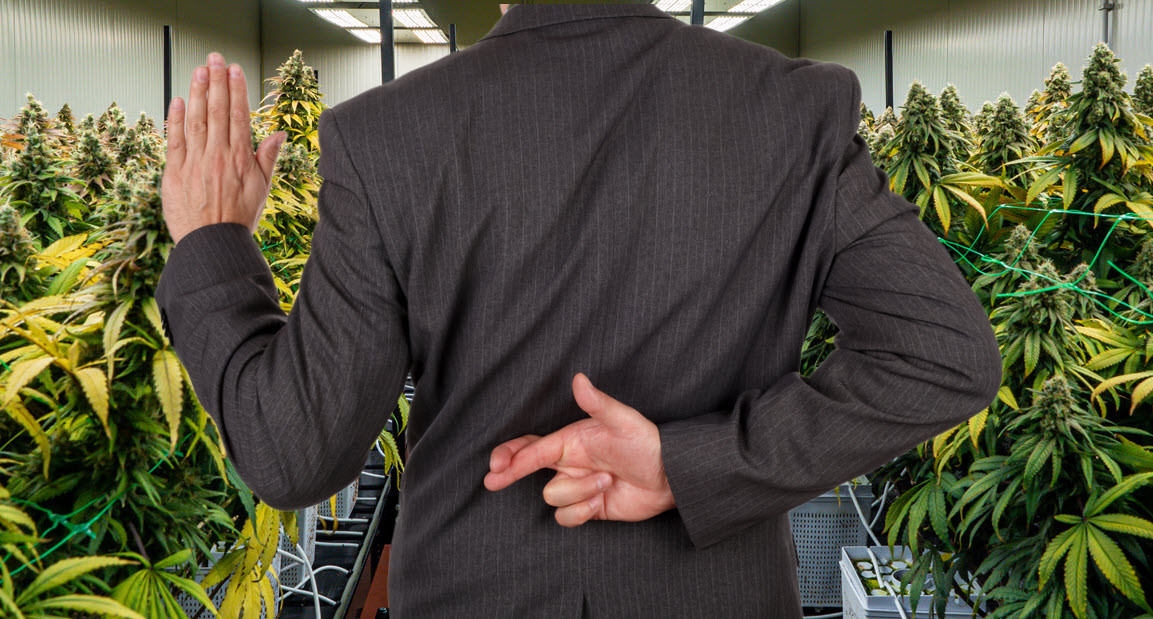
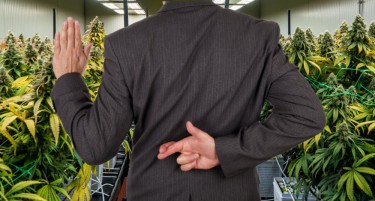
The Rescheduling Ruse: Why I Told You So
In a move that surprised absolutely no one who’s been paying attention, the White House recently announced it has “no action planned” on marijuana reform. Yes, the same marijuana reform that President Trump enthusiastically backed on the campaign trail just weeks before Election Day.
The writing was on the wall all along, folks. I’ve been telling you for months that the much-hyped rescheduling of cannabis from Schedule I to Schedule III was nothing more than political theater – a carefully choreographed dance designed to generate headlines without delivering substantive change. And here we are, with yet another administration putting cannabis reform on the back burner while millions of Americans continue to live under the shadow of failed prohibition policies.
Don’t get me wrong – I’m not here to play political favorites. This isn’t a red versus blue issue. The Biden administration dangled the same carrot, initiating a rescheduling process that conveniently stalled due to “complications” with DEA hearings. Different players, same game.
Let’s take a step back and examine what’s really happening here, because the truth about cannabis reform in America is both simpler and more complex than most people realize.
Trump’s pre-election cannabis conversion was quite the spectacle, wasn’t it? Suddenly, the man who selected Jeff “Good People Don’t Smoke Marijuana” Sessions as his first Attorney General was voicing support for rescheduling, banking access, and even Florida’s legalization initiative.
But as CNN recently reported, “no action is being considered at this time.” The honeymoon didn’t even last through the first dance. The administration’s priorities lie elsewhere – immigration, government spending, foreign policy – while cannabis reform gets shelved alongside countless other campaign promises.
Interestingly, CNN did note that Trump and his transition team attempted to include cannabis banking protections in December’s government funding resolution. This behind-the-scenes effort suggests at least some genuine interest in the issue, but hardly qualifies as the bold reform millions of voters were led to expect.
This pattern should feel familiar. The Biden administration made similar overtures, with the president announcing pardons for federal marijuana possession offenses and directing an administrative review of cannabis scheduling. That process dragged on for over a year, with the DEA repeatedly delaying final action. Biden got the headlines; cannabis users got nothing.
The harsh reality? Cannabis reform makes for good campaign fodder, but terrible governance priorities. Once elected, the political calculus changes dramatically. The motivation to deliver evaporates when the votes are already counted and the special interests start calling in their favors.
At the heart of this perpetual delay lies the Drug Enforcement Administration – an agency whose very existence depends on the continuation of the drug war. Expecting the DEA to facilitate cannabis reform is like asking a turkey to vote for Thanksgiving.
The DEA has mastered the art of procedural obstruction. Under Biden, they scheduled hearings, requested extensions, and effectively ran out the clock. Under Trump, they appear poised to do absolutely nothing, perhaps not even bothering with the pretense of consideration.
The pattern becomes clearer when you look at Trump’s cabinet picks. His nominee to lead the DEA, Terrance Cole, has previously voiced serious concerns about marijuana dangers and linked its use to higher suicide risk among youth. His HHS general counsel nominee, Mike Stuart, is so staunchly anti-cannabis that prohibitionist groups openly celebrated his selection.
Even Robert F. Kennedy Jr., who previously supported legalization, has walked back his stance since being confirmed as HHS Secretary, stating he’s “worried about” high-potency marijuana and deferring to the DEA on rescheduling.
When you stack the regulatory deck with cannabis skeptics, you’ve telegraphed your true intentions no matter what you said on the campaign trail.
Here’s what I’ve been saying all along: meaningful cannabis reform was never going to come from the White House, regardless of who occupied it. The DEA will never willingly relinquish its power, and politicians will always prioritize easier wins over controversial reforms.
The only real path forward is through Congress completely removing cannabis from the Controlled Substances Act. Full stop. No rescheduling, no administrative reviews, no half-measures. Cannabis needs to be descheduled entirely, returning regulatory authority to the states where it belongs.
But while we push for that goal, the real revolution continues on two fronts.
First, state-by-state legalization marches forward. Despite federal inaction, 38 states have medical marijuana programs, and 24 states plus DC have legalized adult use. Each new state that joins the ranks weakens prohibition’s grip and demonstrates the failure of federal policy.
Second, and perhaps more powerful, is what I call “mass defiance of an unjust law.” Every day, millions of Americans peacefully consume cannabis in direct violation of federal law. They grow it in their homes, share it with friends, and build communities around it. This civil disobedience at scale is perhaps the most effective weapon against prohibition.
The federal government simply doesn’t have the resources to enforce cannabis prohibition against a population that increasingly rejects it. When enough people break an unjust law, the law itself becomes unenforceable.
I hate to say I told you so, but… I told you so. The rescheduling promise was never going to materialize, regardless of who won the White House. It was a political mirage, designed to attract voters while requiring minimal commitment.
But don’t mistake my cynicism about federal action for pessimism about our cause. Cannabis reform is happening – it’s just happening from the ground up rather than the top down. Every state that legalizes, every municipality that decriminalizes, every voter who demands change, and yes, every person who peacefully consumes despite prohibition is part of this unstoppable movement.
The lesson here is simple: Don’t put your faith in presidential promises or administrative processes. Put it in your local ballot initiatives, your state legislators, and your own power to reject unjust laws through peaceful non-compliance.
Cannabis prohibition is dying, not because presidents commanded it, but because we the people have decided it must end. That’s the real power in our democracy – not the fleeting promises of politicians, but the sustained will of the citizens.
So next time a candidate promises to fix cannabis laws, remember this moment. Then go out and fix them yourself, one vote, one state, and one act of principled defiance at a time. That’s how real change happens in America, and that’s how we’ll finally end cannabis prohibition once and for all.
CANNABIS UNDER TRUMP 2.0, READ ON…
Cannabis News
Why Quitting Alcohol or Weed Won’t Heal the Pain That Caused You to Start Using Them in the First Place
Published
17 hours agoon
April 5, 2025By
admin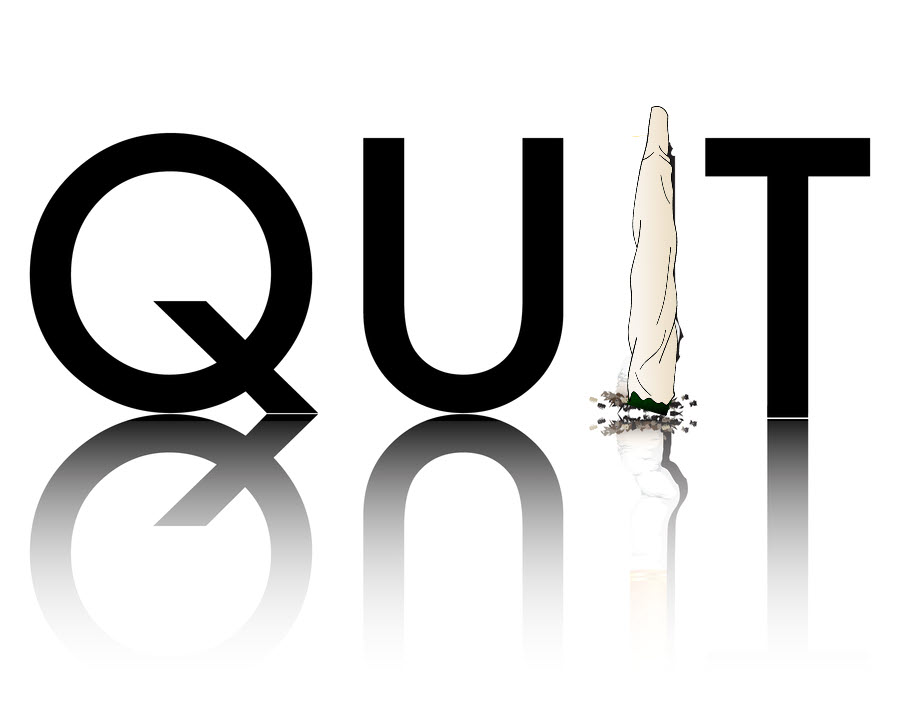
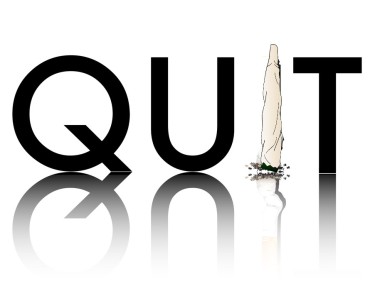
Quitting Won’t Fill the Hole
There’s a pervasive notion that floats around recovery circles—this idea that once you kick your habit, everything will magically fall into place. The clouds will part, the birds will sing, and suddenly life will be worth living again. While it’s true that being addicted to a “thing,” whether substance or act, eventually tallies up consequences that weigh heavy on our souls, the math isn’t quite as simple as “remove addiction, add happiness.”
I’ve watched countless cannabis enthusiasts (and addicts of all stripes) fall into this trap. They sit in circles, eyes gleaming with hope as they declare, “If I could only quit, then everything would be better…” But they’re missing something crucial—their addiction isn’t the source of their discontent; it’s merely a symptom of something deeper.
Addiction, at its core, is a means of dealing with something we cannot name or are desperately trying to avoid. It’s the bandage we slap over a wound without cleaning it first. The cannabis, the alcohol, the gambling, the endless scrolling—these aren’t the disease itself but rather the body’s misguided attempt at self-medication.
Here’s the uncomfortable truth that most recovery programs don’t emphasize enough: if you don’t do the real healing, even if you manage to white-knuckle your way through quitting one addiction, you’ll inevitably find something else to cover that gaping wound. Maybe you’ll trade joints for junk food, or bongs for binge-watching. The face of the addiction changes, but the role it plays remains constant.
Let’s take a deeper dive into this cycle and why simply quitting isn’t enough to truly heal.
First, we must acknowledge that when it comes to pain and addiction, everyone’s journey is unique. What feels like an insurmountable mountain to you might be a speed bump to someone else, and vice versa. There’s no universal scale for suffering, which makes navigating these waters all the more complex.
However, across all these varied experiences, there’s a common trap I’ve seen ensnare countless individuals—what I call the “If/Then Fallacy.” It’s the belief that one singular thing is the root cause of all our discomfort. This is where addicts often say, “If I can only kick this addiction, then my whole life would be better.” While this may seem logical on paper, it’s a deeply flawed perspective.
The real issue rarely lies with the substance or behavior itself but with something deeper—something the addiction is helping us avoid or cope with. Whether it’s trauma, depression, anxiety, or simply the existential weight of being human in an increasingly disconnected world, there’s usually a wound beneath the bandage.
Furthermore, the “If/Then” scenario places your healing, joy, and accomplishments in a fictional future state. “If I stop smoking weed, then I’ll finally have the motivation to start that business.” “If I quit drinking, then my relationship will improve.” These statements create a dangerous binary—because when the “if” is satisfied but the “then” doesn’t materialize, where does that leave you? Often, it leads to “If that didn’t work, then what’s the point of trying anything?”
This thinking creates a perfect setup for relapse or substituting one addiction for another. After all, if quitting didn’t magically transform your life as promised, why continue to deny yourself that temporary relief?
If you’ve been considering quitting cannabis or any other addiction, and you believe it to be the sole source of your unhappiness, I strongly urge you to reconsider your framework. The cannabis, or your relationship with it, is likely just a mask for your real pain. If you want to truly liberate yourself from the burden of addiction, you need to develop the capacity to sit with your pain, examine it, and cultivate joy despite it—not because it disappeared.
This article was inspired by a post I came across while scrolling through Reddit the other day—one of those moments where someone’s raw honesty stops you mid-scroll. A 32-year-old man shared that after smoking cannabis and drinking 4-6 beers daily for nearly his entire 20s, he had finally managed to quit both. No cannabis for almost six months, no alcohol for three. A significant achievement by any measure.
Yet instead of the transformation he expected, he felt “MISERABLE.” Despite taking medication for ADHD and anxiety, and despite removing substances that conventional wisdom says should improve his mental health, he felt no positive change. In fact, he felt worse, as if he’d “stopped doing things that were fun for me, or at least making life bearable.”
His post ended with a plea that broke my heart: “Is this just how I’m going to feel now? Does this go away eventually?”
This redditor’s experience perfectly illustrates the point—even when you manage to power through the physical and psychological challenges of quitting an addiction, your mental and spiritual state doesn’t necessarily transform as a result. His baseline remained exactly the same, perhaps even dipping lower without the chemical crutches he’d relied on for so long.
When you’re changing habits but not experiencing the promised benefits, it’s a clear sign that your discomfort or pain isn’t primarily coming from the substance. The cannabis or alcohol wasn’t creating your misery—it was masking it, providing temporary relief from a deeper issue that remains unaddressed.
This is something we all must consider when facing our compulsions. If you find yourself in a situation where you want to stop a behavior but simply can’t, it might be time to look deeper. Ask yourself, “Why do I do this activity?” And then ask “why” five more times, each answer digging a layer deeper toward the root cause.
Why do I smoke cannabis every night? Because it helps me relax. Why do I need help relaxing? Because my mind races with anxiety. Why does my mind race with anxiety? Because I’m worried about my future. Why am I worried about my future? Because I don’t feel secure in my career path. Why don’t I feel secure in my career path? Because I never really chose it—I fell into it. Why does that bother me? Because I feel like I’m not living authentically or pursuing my true passions.
Once you’ve excavated to this deeper level, you can begin to address the root causes directly. Perhaps the issue isn’t the cannabis at all, but rather that you need to reassess your career path or find meaning outside of work. Without this deeper work, quitting the substance becomes an exercise in willpower rather than healing.
Your addiction isn’t necessarily the root cause of your issues—it’s often just the most visible symptom. If you’re depressed, anxious, or feeling lost, it’s not primarily because of the substance; it’s because of something deeper that the substance helps you manage or forget temporarily.
Unless you actually do the internal work on these matters—examining your pain, seeking appropriate mental health support, rebuilding healthy relationships, finding meaning and purpose—no matter what you quit or how long you stay “clean,” you’ll likely find yourself seeking new ways to shield yourself from the pain. The prison isn’t cannabis or alcohol; it’s the unhealed wound those substances help you endure.
If you’re struggling right now, it’s absolutely important to seek help. That might mean therapy, support groups, or speaking with a healthcare provider about potential underlying mental health conditions that need treatment. But alongside that external support, commit to the honest and difficult work of looking inward. Ask yourself what you’re truly trying to avoid when you reach for that joint or that drink.
At the end of the day, we all have our struggles. If yours involves cannabis at this point in your life, there’s no judgment here. I’ve been there myself. But I’ve also learned that true healing rarely comes from simply removing something from your life—it comes from adding understanding, self-compassion, and addressing the real gaps in your heart and mind that the substance was never capable of filling in the first place.
The void can’t be filled by quitting. But quitting might just give you the clarity to finally see what the void truly needs.
QUITTING CANNABIS, READ ON…
THE STONER’S GUIDE TO QUITTING WEED – WAIT, WHAT…WHY?
Karma Koala
Karma Koala Podcast 247: Speaking with Dr. Natalie Corthésy senior lecturer university of West Indies & Enrico Bonadio professor of law City St George’s University of London about their forthcoming Edward Elgar title, “Intellectual Property and Cannabis”
Published
2 days agoon
April 4, 2025By
admin
DOWNLOAD THE PODCAST FOR FREE AT PODOMATIC
https://www.podomatic.com/podcasts/karmakoalapodcast/episodes/2025-04-04T03_45_51-07_00
Stumbling around the latest legal publishing lists for my other legal information website that I publish Practicesource.com I was very pleasantly surprised to learn that Edward Elgar are to publish a standalone title on cannabis and intellectual property next month.
Well researched and written cannabis legal titles are as rare as hen’s teeth and this will be the first title that I’m aware of that has taken a detailed look at the topic.
A quick email to the publishers put me in touch with author – editors, Professor Enrico Bonadio and Dr. Natalie Corthésy who guide us through the why, what and wherefores of the book.
This episode makes especially pleasurable listening as the English language never sounds better than when given to us by an Italian and a Jamaican.
I hope to get them both back sooner rather than later to dig into a bit more detail about specific IP issues popping up around the planet
In the meantime do buy the book and support the publishing house. We need them, now, more than ever.
The Book
This pioneering book explores the relationship between intellectual property (IP) and cannabis. Expert scholars from across the globe reflect on the legal, cultural, and socio-economic significance of cannabis, addressing the difficulties of adapting legal frameworks to this unique and multifaceted product.
Chapters delve into key issues at the intersection of IP and cannabis, from branding and packaging to social equity concerns surrounding the rapid growth of the market. Contributing authors demonstrate the intricate contradictions between positive IP protection and cannabis regulation, drawing on case studies from jurisdictions where the product is legalised to varying degrees, including Canada, Jamaica, Uruguay, and the Netherlands. Covering different plant varieties, moral rights, and links between cannabis and traditional knowledge, this incisive book highlights the challenges of harmonising global cannabis laws while balancing innovation and tradition.
Providing novel interdisciplinary insights into the controversies and complexities of the law surrounding cannabis, this book is an essential read for students and academics in intellectual property law, pharmaceutical law, innovation and economics. It is also an invaluable toolkit for policymakers in governments and tribunals, as well as commercial entrepreneurs.
Edited by Natalie Corthésy, Senior Lecturer, Faculty of Law, The University of the West Indies, Mona, Jamaica, Enrico Bonadio, Professor of Intellectual Property Law, The City Law School, City St George’s, University of London, UK and Yentyl Williams, Research Assistant to the Dean, Faculty of Law, The University of the West Indies, Mona, Jamaica
Publication Date: May 2025 ISBN: 978 1 03532 938 0 Extent: c 384 pp
Learn more and place your order at
Enrico Bonadio is Professor of Law at City St George’s University of London.
He teaches, researches and advises in the field of intellectual property (IP) law.
His current research agenda focuses on the intersection between IP and technology and protection of non-conventional forms of creativity, amongst other topics. He published so far three monographs – (i) ‘TRIPS and genetic resources’ (Jovene 2008); ‘Copyright in the Street – An Oral History of Creative Processes in the Street Art and Graffiti Subcultures’ (Cambridge University Press 2023); (iii) ‘Food, Philosophy and Intellectual Property – 50 Case Studies’ (with Andrea Borghini) (Routledge 2024). He is currently working on his fourth monograph (together with Bryan Khan) entitled ‘Copyright, Litigation and Music Borrowing in Jamaica’ (with Bryan Khan) (Routledge forthcoming 2026).
He is also the editor or co-editor of the following books:
- – ‘Intellectual Property and Religions: Confluences of Faith, Ownership and Law’ (edited with Nicola Lucchi and Bryan Khan) (Hart Publishing forthcoming 2026)
- – ‘The Cambridge Handbook of Intellectual Property and Generative Artificial Intelligence in Europe’ (edited with Peter Mezei and Eduardo Alonso) (Cambridge University Press forthcoming 2026)
- – ‘Street Art and Democracy’ (edited with Siri Egeland) (Routledge forthcoming 2026)
- – ‘Cannabis and Intellectual Property’ (edited with N. Corthésy and Yentyl Williams) (Elgar forthcoming 2025)
- – ‘The Future of Geographical Indications: European and Global Perspectives’ (edited with A. Zappalaglio) (Elgar forthcoming 2025)
- – ‘A Research Agenda for Patent Law’ (edited with N. Shemtov) (Elgar, forthcoming 2025)
- – A Research Agenda for EU Copyright Law’ (edited with C. Sganga) (Elgar, forthcoming 2025)
- – ‘Non-Fungible Tokens, Creativity and the Law: within and beyond Copyright’ (edited with C. Sganga) (Routledge 2024)
- – ‘Music Borrowing and Copyright Law’ (edited with C. Zhu) (Hart Publishing 2023)
- – ‘The Cambridge Handbook of Investment-Driven Intellectual Property’ (edited with P. Goold) (Cambridge University Press 2023)
- – ‘Intellectual Property Excesses – Exploring the Boundaries of IP Protection’ (edited with A. O’Connell) (Hart Publishing 2022)
Dr. Natalie Corthésy
Senior Lecturer University of West Indies
Education: LL.B. Hons. (UWI) LL.M. (Lond), PhD (Lond.)
Professional Affiliation: Attorney-at-Law
Natalie Corthésy is a graduate of The UWI Faculty of Law Cave Hill. She obtained her LLM from University College London and read for her PhD at Queen Mary University of London. She teaches Intellectual Property Law, Advanced Copyright Law, Geographical Indications in the Global market, Employment Law, Industrial Relations Law and Tort Law. She is the Associate Dean of Outreach and Continuing Legal Education and Coordinator of the LLM in IP Law and the Cultural and Creative Industries which she was instrumental in conceptualizing and launching with the assistance of the World Intellectual Property Organisation (WIPO).
Dr Corthésy is also a published poet and I’ll be making sure I read her collection
Here she talks about her work
Dr. Yentyl Williams
Trade & IP | Strategist | RA to Dean UWI MonaLaw
Jamaica Manufacturers and Exporters associationt
Faculty of Law, The University of the West Indies, Mona Campus TUTOR IP LAWl
Technical Consultant – Trade
Jamaica Manufacturers and Exporters AssociationJamaica Manufacturers and Exporters Association
-
-
- – Trade Policy and Advocacy
- – Partnerships and Stakeholder Engagement
- – Standards, IP, and Non-Tariff Barriers
- – Research and Analysis
- – Training and Capacity Building
- – Reporting and Administration – Trade Policy and Advocacy – Partnerships and Stakeholder Engagement – Standards, IP, and Non-Tariff Barriers – Research ane
- – Tutor of IP Law to 3rd year Law students (Copyright, Trade marks, Patents).
- – Co-develop Geographical Indications LLM course & guest lecture.- Tutor of IP Law to 3rd year Law students (Copyright, Trade marks, Patents). – Co-develop Geographical Indications LLM course & guest lecture.
-

The Cannabis Rescheduling Ruse – White House Says No Action Planned on Cannabis Reform, Hate to Say I Told You So!

Why Quitting Alcohol or Weed Won’t Heal the Pain That Caused You to Start Using Them in the First Place

Karma Koala Podcast 247: Speaking with Dr. Natalie Corthésy senior lecturer university of West Indies & Enrico Bonadio professor of law City St George’s University of London about their forthcoming Edward Elgar title, “Intellectual Property and Cannabis”

MJBizCon offers speakers chance to share cannabis insights, shape industry

The Best Tariff Friendly Cocktails

Cannabis Consumers Are Being Hit By The Tariffs

The Best Tips To Update Your Wardrobe

Former New York Knick Iman Shumpert debuts ‘TSA Approved’ legal cannabis brand

How New York pot pioneers made it to legal dispensary shelves

Scientists Now Think That One Compound in the Cannabis Plant Can Replace All Opiates

Distressed Cannabis Business Takeaways – Canna Law Blog™

United States: Alex Malyshev And Melinda Fellner Discuss The Intersection Of Tax And Cannabis In New Video Series – Part VI: Licensing (Video)

What you Need to Know

Drug Testing for Marijuana – The Joint Blog

NCIA Write About Their Equity Scholarship Program

It has been a wild news week – here’s how CBD and weed can help you relax

Cannabis, alcohol firm SNDL loses CA$372.4 million in 2022

A new April 20 cannabis contest includes a $40,000 purse

Your Go-To Source for Cannabis Logos and Designs

UArizona launches online cannabis compliance online course
Trending
-

 Cannabis News2 years ago
Cannabis News2 years agoDistressed Cannabis Business Takeaways – Canna Law Blog™
-

 One-Hit Wonders2 years ago
One-Hit Wonders2 years agoUnited States: Alex Malyshev And Melinda Fellner Discuss The Intersection Of Tax And Cannabis In New Video Series – Part VI: Licensing (Video)
-

 Cannabis 1012 years ago
Cannabis 1012 years agoWhat you Need to Know
-

 drug testing1 year ago
drug testing1 year agoDrug Testing for Marijuana – The Joint Blog
-

 Education2 years ago
Education2 years agoNCIA Write About Their Equity Scholarship Program
-

 Cannabis2 years ago
Cannabis2 years agoIt has been a wild news week – here’s how CBD and weed can help you relax
-

 Marijuana Business Daily2 years ago
Marijuana Business Daily2 years agoCannabis, alcohol firm SNDL loses CA$372.4 million in 2022
-

 California2 years ago
California2 years agoA new April 20 cannabis contest includes a $40,000 purse




